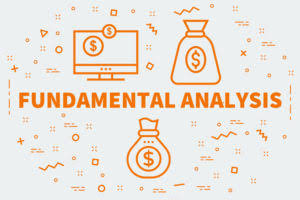Unfortunately, the issuing individual or business does not have any way to force a check to be deposited. Once such checks are finally deposited, they can cause accounting problems. Furthermore, checks that are never cashed may constitute “unclaimed property” that is turned over to the state. • You may wind up being charged overdraft fees and non-sufficient funds (NSF) fees if the outstanding check is deposited and then bounces. If you wrote a check that is outstanding for more than a few weeks, there are steps you can take to resolve the situation.
Get Tips For Managing Real Estate Wealth

A new check would have to be written or another method of payment could be used. It’s when the payee neglects to cash or deposit a check (or the check gets lost). This means the check does not clear and does not show on a month-end bank statement. It’s commonly used to receive direct deposit of paychecks, pay bills, make debit card transactions and withdraw cash. While a savings account may be where you store money for emergencies or financial goals, money moves in and out of your checking account frequently. You can tell if a check is outstanding by reviewing your online bank account.
Business Accounting
If you wrote a check and it is still outstanding, you should consider contacting the recipient to confirm they received it. If you possess an outstanding check, it’s good to deposit it as soon as possible to avoid having it go stale. While there are many risks with outstanding checks, there are simple steps you can take to avoid them. ◦ Working with the bank to ensure a stale check outstanding check definition gets deposited might require time and effort. First and foremost, SoFi Learn strives to be a beneficial resource to you as you navigate your financial journey.We develop content that covers a variety of financial topics. As long as you know not to spend money promised to someone else, avoiding expensive consequences such as overdrafts or insufficient funds fees is possible.
- While there are many risks with outstanding checks, there are simple steps you can take to avoid them.
- When a business writes a check, it deducts the amount from the appropriate general ledger cash account.
- An outstanding check is any check written on a bank account that hasn’t yet been cashed or deposited and cleared.
- Of course, it’s best practice to deposit a check as soon as you receive it, which is why most checks include language encouraging a timely deposit.
- The payee, or recipient, should take steps to deposit outstanding checks as quickly as possible to avoid the risk of their becoming void.
- That said, it is possible for the issuing party to request a stop order from their bank, which would void the check that was issued.
A Check Issued to Me Is Outstanding: Now What?
How often have you received a check, set it aside on your desk, then nearly forgotten about it? On the payor side, it creates the need to carefully track uncashed checks so that money doesn’t get spent on other things. However, if your budget is handled appropriately and all checks are marked as pending, you’ll know not to spend that money. If a check remains outstanding for an extended period, it may become stale-dated, and the bank may refuse to honor it.
- For example, payments may show as being paid but if the cash has not yet been debited from the account, there may be inconsistencies worth reconciling.
- In banking, “float” refers to money that temporarily shows up in the bank accounts of both the check writer and the check recipient.
- With this in mind, it can take as long as six months to get an outstanding check withdrawn from your account.
- Regardless of the reason, it is crucial to identify outstanding checks and take appropriate action to bring them to resolution.
- • In business bank accounts, outstanding checks can cause hiccups in accounting if not tracked well.
- As such, it’s important to track your true available balance to avoid spending the money earmarked for the check and possibly overdrawing your account.

An overdraft occurs when the account holder who wrote a check that is still pending does not have enough money in their account to cover the amount of the check when it is eventually submitted for payment. After https://www.bookstime.com/retained-earnings-normal-balance a check is issued, the recipient does not have to deposit or cash the check immediately. In fact, in most jurisdictions, an issued check will still be deposited by banks up to six months after the issue date.
Risks Associated with Outstanding Checks
How to Identify Outstanding Checks


Legutóbbi hozzászólások